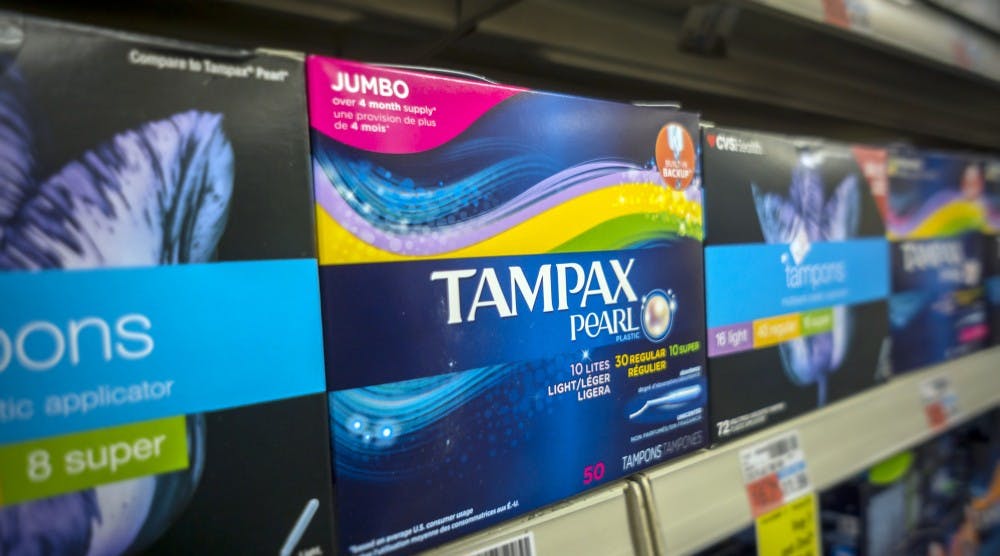About half of the world will eventually experience or has already experienced the special hell that is menstruation. Despite the reach of the issue, there is startlingly little education on the subject — and startlingly little effort to accommodate this need. In my opinion, this stems from the fact that we're so uncomfortable talking about it that almost no productive debate ever occurs.
With that said, let's talk about my period.
This is more than you may do in sex education classes if you went to school in South Carolina. While state law does require sex ed, unlike many states, and classes are required to discuss topics including "bodily functions" and "reproductive health," both of which could cover menstruation, there is no real requirement mandating it, regulating how it's discussed in class, what must be covered or whether the information needs to be accurate. Although I grew up in Virginia, where the Board of Education guidelines do require discussion of the "menstrual cycle," my sex ed on the subject mostly focused on hygiene and the actual biological process, which is useful and interesting information, respectively, but distinctly not adequate.
For example, learning that your body is sloughing uterine lining through your vaginal canal is interesting, but is also a singularly useless piece of information when it comes to a determination many women are forced to make in their lives: Is my period normal? In my classes, I was told that I would bleed, and why, and that it might be unpleasant, but not how much, or how long or how it would feel.
That information is vital to our reproductive health because it dictates whether we go for help when something is wrong. People with endometriosis, for example, often experience extremely painful periods, but are not diagnosed (and therefore not treated) because they assume that their pain is normal. That can't be dismissed as a rare case not worthy of consideration, either: 10 percent of women have endometriosis.
As little as I was taught about my period, the boys in my class were taught even less. We were segregated by sex for the class, and this lesson was considered unimportant for people who weren't going to menstruate to know — which, as many people who do menstruate can tell you, isn't always ideal. Boys were deeply uncomfortable with seeing pads and tampons and would make fun of us for carrying them in middle and high school. One boy I went to school with (echoing a common myth) thought he could smell when we were "on our cycles." And of course, we've all heard adult men make tasteless, sexist jokes about how nasty and irrational women on their periods are.
This ignorance and the sexism it's rooted in is deeply annoying to us. But more than that, it actively hurts us (and not just our feelings) because rules that govern our lives are constructed around men's ignorance to periods.
You might have heard about the tampon tax. Most states, as it turns out, tax sanitary products like pads and tampons as "luxury items," leading to us paying more for an item that, as anyone who has ever experienced the unique luxury of bleeding into their underwear for a week can tell you, is complete baloney. California assemblywoman Cristina Garcia, who has taken this on as one of her issues of interest, estimates that thanks to this this tax, women in California pay more than $3300 dollars over their lifetimes for pads and tampons, an expense out of reach for many people.
(Thinking of helping the homeless? Try donating sanitary products.)
But the injustice of people who don't experience the problem making the rules is never more apparent than in women's prisons. Although as of this year, sanitary products are finally free to inmates in the federal system; the same is not true of jails and many state prisons. Humiliatingly, prisoners making mere cents per hour for their work who are unable to afford tampons and pads from the commissary may be forced to simply bleed freely. Alternatively, they may be able to afford pads, but are only permitted a quantity that's completely inadequate, like Arizona's 12-pads-a-month rule.
If I was confined to 12 pads a month, my life would be measurably grosser. I don't think I'm alone in that.
We've gotten into these various situations because, for some reason, we don't bother to adequately educate people about menstruation, and we're all scared to have a discussion about it.
So now that I've talked about my period, go out and learn more about it.

